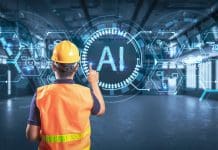Keir Starmer has stated his desire to become an “AI superpower”, betting a lot on the developing technology
The latest speech from Keir Starmer has laid out the new UK Artificial Intelligence plan and its impact on industry. This comes on top of the National AI strategy established by the Conservative government two years ago.
The UK AI action plan comes as the technology is spreading its roots in various industries, but many are concerned about lack of understanding of the young technology and its young age and its risks.
The UK Artificial Intelligence Plan is intended to boost the country
The PM demonstrated great confidence in the capabilities of AI, stating it can transform public services, secure economic growth, and raise living standards, even saying he wants it to “change how the government works”.
The plan as laid out in the speech has several intentions:
- The establishment of AI growth zones: These zones are intended to hasten the approval rate of planning proposals, as well as establish AI infrastructure such as data centres. The first established AI growth zone will be Culham, Oxfordshire
- The building of a new supercomputer: A new UK supercomputer is, as the PM assured, set to be built and increase computing power twentyfold. This computer is intended to be built by 2030, and comes after the current government abandoned a similar plan for a super computer in Edinburgh that was established by the Conservative government.
- AI is intended to be employed in public sector jobs-This move will boost employee productivity and efficiency, handling more of the admin work and allowing the human worker to deliver services – including in governmental departments.
AI has already been employed in several public sectors, including hospitals to assist in diagnoses, and schools and SMEs for planning and maintaining records. Future uses of the technology include using AI to inspect roads for potholes, and mark them for fixing.
Vantage Data Centres, Nscale, and Kyndryl, have all pledged a combined £14m investment into AI infrastructure as a part of the UK AI action plan, on top of the £25m investment from the International Investment Summit.
The investments are intended to deliver data centres across the country, including a new AI tech hub in Liverpool.
AI has already made a mark in construction
Some in the industry have touted AI as a great tool for decision-making – be it on planning permission or critical infrastructure projects. Yet many of those still acknowledge that more trust is needed with the technology, and that training and the know-how to use the technology is the most important aspect.
AI is also expected to have a large role in civil engineering, as it provides generative design – using algorithms and machine learning to explore design possibilities.
This allows the production of designs that an engineer alone may not have come up with, and considers factors such as material properties and performance requirements.
AI can also boost project management, predicting delays, identifying critical paths, and creating realistic project schedules, as well as identifying safety hazards and providing a new layer of flexibility for reaction to changes.
It is also expected to optimise engineering lifecycles through simulation and modelling boosts and optimisations, leading to more rapid and well-informed decision-making.
And indeed, throughout 2024, AI made its way into several construction projects. This includes being used in a health and safety system at the Sellafield nuclear site. The system was utilised through a camera system and featured a device capable of detecting the human form.
Artificial intelligence has also been used to monitor the health of bridges, allowing for predictive maintenance through enhanced risk evaluation, boosting safety and cost efficiency.
This is because AI can analyse images and the data from installed sensors to predict where defects in the structure of a bridge can arise before they even do.
The PM, and indeed many experts say that the UK is well positioned to take advantage of the growth of AI, but only time will tell what effects it will have on the construction industry, and the country as a whole.
The industry reacts to the focus on AI
Dave Dargan, CEO of the Starship Group, said: “AI stands as a transformative force across a variety of sectors, prompting serious consideration for its integration into the construction industry. Embracing AI represents an exciting opportunity to streamline workflows, enhance productivity and improve decision-making – capabilities that are particularly vital in modular construction. Most importantly, the adoption of AI could also accelerate the delivery of the Prime Minister’s ambitious target of 1.5m homes by helping predict potential delays and speed up traditionally slow processes, driving progress toward this key manifesto promise.
“I am dedicated to harnessing AI as a complementary tool that enhances real people’s capabilities, none more so as the 1,000 new tech jobs announced in the Liverpool City Region, where Starship is proudly based. Sir Keir Starmer pledged to create “jobs of the future” that will “relight the fires of innovation” in the region. I welcome this initiative and remain committed to ensuring a balanced integration of AI and hands-on expertise. This approach will not only help turn this technological revolution into a practical reality, but also contribute to driving economic stability in the North West.”
Dave Seed, managing director at Qube Residential, said: “AI is revolutionising the property management landscape, integrating into processes such as screening tenants and property maintenance. Its adoption offers unmatched opportunities to save time and boost productivity. Managing a portfolio of properties is highly demanding, often leaving little room for adopting new ways of working. However, embracing AI presents an exciting chance to streamline operations, while I expect this advancement will also support international investors in navigating the UK housing market more effectively and efficiently. With 1,000 new jobs announced in the Liverpool City Region, I am eager to see how the region’s property sector will use AI to help drive economic prosperity.”














